Mobility scooters are an essential tool for many individuals with limited mobility, allowing them to maintain their independence and freedom. They come in various sizes, styles, and features, catering to different needs and preferences. Understanding the cost of mobility scooters is vital for anyone considering purchasing one, as prices can vary widely based on the model and its capabilities.
The cost of a mobility scooter typically ranges from $600 to $4,000, with the average price around $1,500. Several factors influence the final amount, such as weight capacity, number of wheels, number of batteries, and the scooter's travel distance capabilities. Premium models with advanced features and specifications tend to cost more than basic ones.
While the price of a mobility scooter can be a significant investment, it is essential to consider its value in terms of the user's quality of life and independence. With numerous brands and models available on the market, conducting thorough research and comparing features can help potential buyers make an informed decision that best matches their needs and budget.
Basic Understanding of Mobility Scooters
Mobility scooters are electric-powered devices designed to assist individuals with limited mobility, making it easier for them to move around independently. They come in various styles, sizes, and capacities to cater to a wide range of users' needs. Mobility scooters typically have either three or four wheels, with the three-wheel mobility scooter offering greater maneuverability, while the four-wheel mobility scooter provides better stability and support.
The key components of mobility scooters include batteries, braking systems, tires, controls, and lights. These features, along with the scooter's size and brand, contribute to the overall cost of the device. Mobility scooters are classified into different categories based on their features, capabilities, and intended use. Some of the common types include basic or travel scooters, mid-range scooters, heavy-duty scooters, luxury or high-end scooters, and foldable scooters.
Basic or travel mobility scooters are compact, lightweight, and easily transportable. They are designed for short trips and are generally more affordable, with prices starting from around $600. Mid-range mobility scooters offer a balance between price and features, catering to a broader range of users and scenarios. Their cost can range from $800 to $1,500, depending on the specific model and features included.
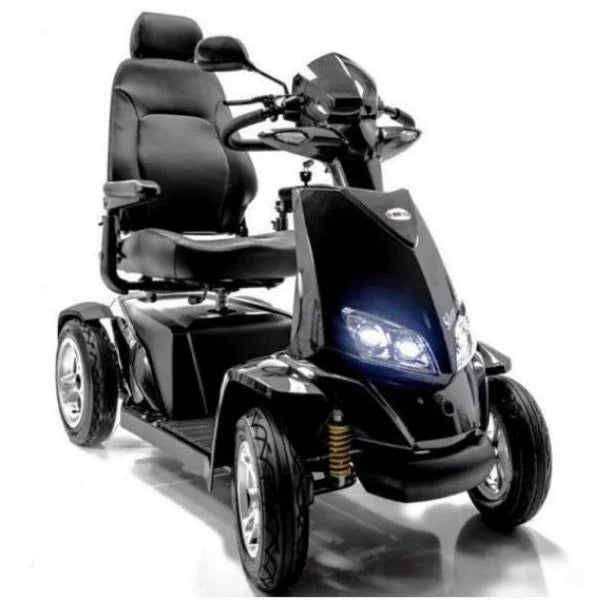
Heavy-duty mobility scooters are designed for users with more demanding requirements, such as higher weight capacities or more rugged terrains. These scooters often feature larger tires, stronger motors, and more durable frames. As a result, their price range can be higher, starting from around $2,000.
Luxury or high-end mobility scooters come with premium features, such as advanced suspension systems, customizable seating options, and high-capacity batteries, making them suitable for long-distance travel. These scooters are generally more expensive, with costs ranging from $3,000 to $5,000 or more.
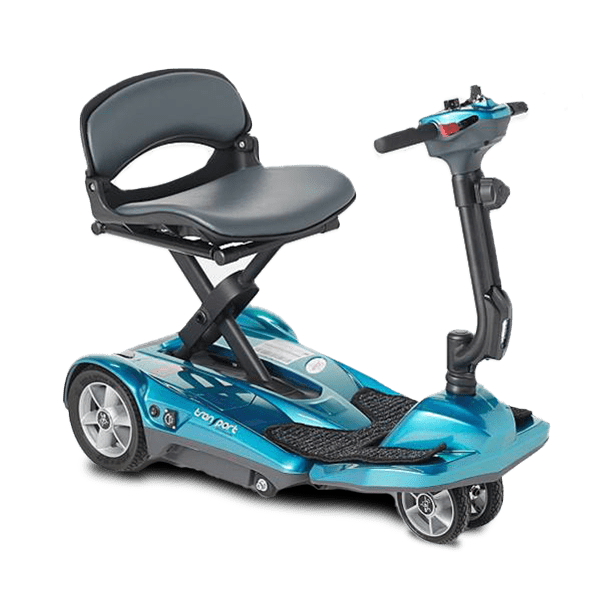
Foldable mobility scooters are designed for easy storage and transportation, making them a popular choice for individuals who require a scooter on the go. Their prices may vary widely depending on the model and features, but they typically fall within the range of $1,000 to $3,000.
It is essential to consider factors such as intended use, budget, individual needs, and personal preferences when selecting a mobility scooter. Comparing different models, features, and price ranges can help users find the most suitable option for their unique requirements.
Various Types of Mobility Scooters
Indoor vs Outdoor Mobility Scooters
Indoor mobility scooters are designed specifically for use inside homes and other buildings. These scooters are typically lightweight and have a smaller turning radius, making it easier to maneuver in tight spaces. They may come with lower top speeds, as high speeds are not essential for indoor use.
Outdoor mobility scooters, on the other hand, are often built to withstand rougher terrain and may have additional suspension systems for a more comfortable ride. They usually have larger wheels and higher ground clearance, enabling them to tackle obstacles like curbs and uneven pavement. Heavy-duty or all-terrain scooters fall into this category, offering even more rugged features for off-road adventures.
Travel vs Full-Size Scooters
Travel scooters are smaller, lightweight, and designed for portability. They typically disassemble or fold to fit into a vehicle or for easier storage. These scooters often have a shorter travel range between 9 to 15 miles, depending on the battery and model. They generally cost between $900 and $3,000, which varies based on brand, size, and additional features.
Full-size scooters provide a more comfortable and stable ride with better suspension systems, larger seats, and additional legroom. They are ideal for those who need a more capable and feature-rich scooter for daily use. The Golden Technologies Companion 3-Wheel Full Size Scooter, for example, is known for its impressive legroom. Full-size scooters can be more expensive, with pricing starting around $1,500 and reaching up to several thousand dollars, depending on the specific model and features.
When choosing a mobility scooter, it's essential to consider the intended usage, whether indoor or outdoor, and the portability requirements. Understanding the differences between indoor, outdoor, travel, and full-size scooters will help buyers make an informed decision that best suits their needs and budget.
Factors Influencing the Cost of Mobility Scooters
Make and Model
The make and model of a mobility scooter play a crucial role in determining the price. Different models are available with varying features, sizes, and abilities to cater to the specific needs of the users. The cost of a mobility scooter can range from $600 to more than $4,000 depending on the model you choose. Some popular mobility scooter models include travel scooters, foldable scooters, and heavy-duty scooters.
Additional Features
Several additional features can impact the price of mobility scooters. Some of these features focus on enhancing user comfort, safety, and ease of use. For instance, features like adjustable seats, suspension systems, longer battery life, and built-in storage compartments can increase the price of the scooter. Additionally, more advanced mobility scooters with higher weight capacities, all-terrain capabilities, or higher speeds will naturally be more expensive.
Brand and Manufacturer
The brand and manufacturer of the mobility scooter can also influence the cost. Renowned brands are often trusted for their quality and durability, and thus, may charge a premium for their products. Some well-known mobility scooter manufacturers include Pride Mobility, Metro Mobility, Afikim, EV Rider, and Golden Technologies. It is essential to research the reputation and customer reviews of different brands to ensure that you are investing in a reliable and durable mobility scooter. Remember, buying from a reputable manufacturer may help you save money in the long run through reduced maintenance and replacement costs.
Buying New vs Used Mobility Scooters
When considering purchasing a mobility scooter, the choice between buying new or used can significantly impact your overall cost and experience. It is essential to understand the price differences and factors that may influence your decision.
Buying a new mobility scooter offers several advantages, such as warranties, access to the latest technology and features, and peace of mind knowing that the scooter has not been previously used or damaged. Mobility scooters purchased new can range anywhere from $700 to $6,000 depending on the brand and features included. Here at Mobility Nest, our cheapest mobility scooter is $699.
On the other hand, one of the primary reasons people choose used mobility scooters is the significant cost savings compared to buying new. The price of a used scooter can vary widely depending on factors such as the scooter's age, brand, condition, and features. On average, you can expect to pay anywhere from $500 to $2,500 for a used mobility scooter.

When comparing the costs of new and used mobility scooters, keep in mind that used scooters may require additional expenses for repairs, maintenance, and parts replacements. Some common costs include:
- Ignition repair: $125.00 - $160.00
- Basic tune-up and inspection: $65.00 - $80.00
- Motor replacement: $165.00 - $185.00
- Tire replacement (4 tires): $115.00 - $30.00
- Seat repair: $50.00 - $60.00
- Battery replacement: $65.00 - $80.00
- Armrest replacement: $50.00 - $65.00
When buying a used mobility scooter, it is essential to carefully inspect the scooter for any signs of wear or damage, and inquire about its history and maintenance records. Additionally, you may want to research the availability and costs of replacement parts, as some older or discontinued models may have limited accessibility to parts and support.
In conclusion, whether you choose to buy a new or used mobility scooter will depend on your budget, desired features, and comfort level with potential maintenance and repair costs. By carefully considering these factors, you can make an informed decision that best meets your mobility and financial needs.
Renting a Mobility Scooter
Short-Term vs Long-Term Rental
When considering a mobility scooter, renting can be an affordable and flexible option. There are two primary types of rental periods to consider: short-term and long-term rentals.
Short-term rentals, typically ranging from a day to a week, can be ideal for situations like traveling, attending events, or managing temporary mobility issues. In these cases, renting a mobility scooter for a week can cost around $250. Insurance may cover the rental fee if it is deemed medically necessary.
Long-term rentals, on the other hand, cater to individuals who require a mobility aid for an extended period of time but may not be ready to commit to purchasing. Prices for long-term rentals vary depending on the duration and the type of mobility scooter. Comparing different rental companies can help you find a suitable option that meets your needs and budget.
When renting a mobility scooter, it's important to take into account factors like weight capacity, number of wheels, and battery life to ensure a suitable fit for the user. Don't hesitate to ask questions and seek advice from the rental company, as their expertise can be invaluable in helping you make an informed decision.
In conclusion, renting a mobility scooter offers flexibility and affordability for those with temporary or uncertain mobility needs. Be sure to research and compare rental options to find the best fit for your specific situation.
Navigating Mobility Scooter Insurance and Medicare
When considering the cost of a mobility scooter, it is essential to understand the available insurance options that might help alleviate the financial burden. Medicare, a federal program, can offer significant assistance for qualified individuals.
Medicare Part B (Medical Insurance) offers coverage for Mobility scooters as durable medical equipment (DME). Eligibility for this coverage requires medical necessity, as determined by a doctor's written order stating that the individual needs a wheelchair or scooter for use within their home. In addition, the applicant must have limited mobility and be enrolled in the Medicare program.
Once an individual meets the necessary requirements, Medicare Part B can provide partial coverage for the purchase or rental of a mobility scooter. The Part B deductible is $240, which must be met in order for the coverage to take effect. After the deductible has been paid, Medicare Part B typically covers 80% of the cost of an approved mobility scooter, with the remaining 20% being the responsibility of the beneficiary. It is important to note that the total cost of the scooter— and therefore the exact out-of-pocket expense— will vary depending on the model, with prices ranging between $600 and $3,000.
For those with supplemental coverage, such as Medigap or Medicare Advantage, additional financial assistance may be available to minimize the 20% coinsurance. These insurance plans may offer varying copay amounts depending on the specific coverage details.
In summary, navigating mobility scooter insurance and Medicare involves understanding eligibility requirements, considering supplemental insurance options, and staying informed about the costs associated with durable medical equipment like mobility scooters. Being knowledgeable about these factors can help individuals make informed decisions and potentially alleviate a significant portion of the financial burden when purchasing or renting a mobility scooter.
Common Mobility Scooter Brands and Their Pricing
Mobility scooters are essential devices for many people with mobility issues. They offer a sense of independence and help users navigate their surroundings with ease. There are various brands and models available in the market, with prices varying depending on factors such as features, size, and weight capacity.
One popular brand is Pride Mobility, known for its wide range of mobility scooters. Their products cater to various needs, offering models for different terrains and weight capacities. Prices for Pride Mobility scooters can start at around $1,000 for basic models and go up to $6,000 for feature-rich, heavy-duty versions.
Another reputable brand is Golden Technologies, which offers models such as the Companion 3-Wheel Full-Size Scooter, known for its ample legroom, and the Golden Technologies LiteRider Envy, often praised for its comfort. Golden Technologies scooters usually have a price range starting from around $1,200 up to $3,500 for their more advanced models.

Metro Mobility is another brand to be aware of when shopping for a mobility scooter. They offer a selection of models that cater to various needs, including those for travel and heavy-duty usage. Metro Mobility scooters generally range in price from $800 to $1500.
When looking at mobility scooter pricing, it's essential to keep in mind the specific features you require, such as weight capacity, speed capabilities, and ease of transport. Some models may be foldable or disassemble for more effortless transport, while others may have advanced suspension systems for smoother rides.
To give an idea of the price ranges for different categories of mobility scooters, here's a summary:
- Travel mobility scooters: $600 to $2,000
- Mid-sized mobility scooters: $1,000 to $3,000
- Heavy-duty and bariatric mobility scooters: $1,200 to over $3,500
In conclusion, there are several notable mobility scooter brands offering various models with different features and capabilities. To make the best choice for your needs, it's essential to compare the options and prioritize the features that matter the most to you.
Battery, Motors, and Distance Coverage
Mobility scooters are powered by batteries, typically using either lead-acid or lithium-ion batteries. Lead-acid batteries are usually more affordable, while lithium-ion batteries provide longer-lasting power and quicker charging times. The battery capacity and the type of motor used in the scooter contribute significantly to the overall performance and distance coverage.
Most mobility scooters have a range of 15 to 30 miles on a full charge, depending on factors such as the battery's age, terrain, and user's weight. Higher battery capacities provide longer distance coverage, allowing users to travel further without needing to recharge. For instance, a scooter with a 30 Ah (Amp-hour) capacity battery will generally have a longer range than a model with a 20 Ah capacity.
Mobility scooters use electric motors, with some models featuring a single motor and others equipped with dual or even four motors. Single-motor scooters are usually lighter and more affordable, while multiple motors provide improved power and performance. They can better tackle inclines, rough terrain, and handle higher user weight capacities.
It's essential to consider battery capacity, motor type, and range when selecting a mobility scooter. A scooter with an efficient motor and a high-capacity battery will allow users to travel longer distances, minimize recharge times, and provide a more comfortable and reliable experience overall. Remember, the specific range of the scooter varies on factors such as user weight, terrain, and battery charge, so it's essential to factor individual needs and usage habits when choosing the right mobility scooter.
Choosing the Right Mobility Scooter Size and Design
When selecting a mobility scooter, it's essential to consider the size, design, weight capacity, handlebar, and adjustable features to ensure the best fit for your needs. By understanding these factors, you can make an informed decision and find a scooter that will enhance your quality of life.
Size plays a crucial role in choosing a mobility scooter. There are three main categories: small, mid-size, and large. Small scooters are typically compact and lightweight, making them ideal for indoor use and easy transportation. Mid-size scooters offer a balance between portability and power, suitable for both indoor and outdoor use. Lastly, large scooters are designed for extended outdoor use and rough terrain, often featuring bigger wheels, higher ground clearance, and advanced suspension systems.
The design of the mobility scooter influences the user's comfort and overall functionality. There are primarily two designs available: three-wheeled and four-wheeled scooters. Three-wheeled scooters permit better maneuverability in tight spaces, while four-wheeled scooters provide more stability, especially on uneven surfaces.
The weight capacity is another important factor to consider. Mobility scooters usually have weight capacities ranging from 250 to 500 pounds or more. Be sure to choose a scooter that can comfortably accommodate your weight and any additional items you may carry like groceries or personal belongings.
Handlebars on mobility scooters are an essential feature to use the device effectively. Ensure they are ergonomically designed to provide a comfortable grip while reducing strain on your hands and wrists. Additionally, some scooters have delta tillers, enabling you to operate the device with a single hand, which is particularly beneficial for those with limited dexterity in one hand.
Lastly, look for adjustable features, such as the seat height, backrest, and armrests to customize the scooter to your specific needs. The more adjustable options the scooter has, the more comfortable you will be during regular use.
By evaluating your daily needs and requirements alongside these essential factors, you can confidently choose the right mobility scooter size and design that will serve as a valuable tool in maintaining independence and mobility.
Extra Accessories and Their Costs
When purchasing a mobility scooter, one might consider additional accessories to enhance the user experience. Some popular accessories include bags, baskets, rearview mirrors, wheelchair ramps, and more. This section will discuss these accessories and their respective costs to provide a clear understanding of the investment.
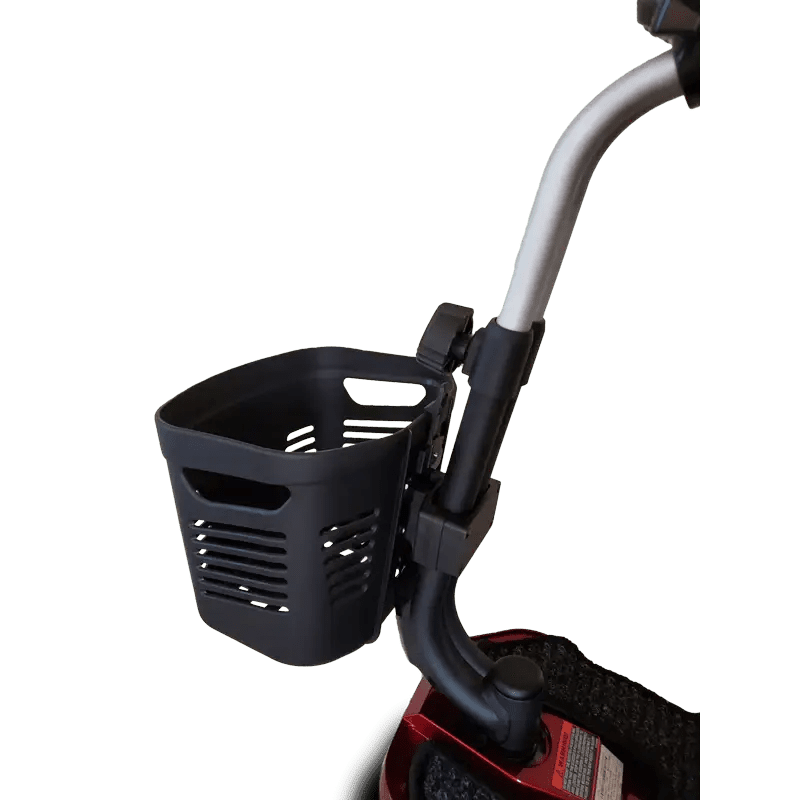
Bags and Baskets are useful for storing personal belongings such as wallets, keys, or even groceries while using a mobility scooter. Bags typically cost between $20 to $50, while baskets can range from $30 to $60.
Rearview Mirrors provide added safety by allowing the rider to see what's behind them without turning their head. These mirrors usually cost between $15 and $30.
Wheelchair Ramps are essential for those who require a mobility scooter to access different areas of their homes or vehicles easily. Prices vary depending on the size and material of the ramp. Portable ramps can cost between $100 and $500, while more permanent installations may cost a few thousand dollars.
Accessories like Armrest Covers or Seat Cushions may also be considered to increase comfort during use. Armrest covers typically cost between $20 to $40, while seat cushions can range from $30 to $100.
Concluding Remarks
In order to understand the costs associated with mobility scooters, thorough research is necessary. The price of these scooters can range from $600 to over $4,000, depending on factors such as size, brand, and accessories. Exploring online resources, such as reviews and price comparisons, can prove beneficial in finding the most suitable scooter within one's budget.
Community forums and Facebook groups can also be valuable places to gather information from actual users and gain insights into real-life experiences with different scooter models. This information can be helpful to avoid potential issues and ensure a more informed decision.
When considering a mobility scooter purchase, it is essential to factor in potential maintenance costs and any additional accessories that may be needed. Keeping these elements in mind will help individuals make the most informed decision in selecting the mobility scooter that best fits their needs and budget.
Frequently Asked Questions
What is the average price range for mobility scooters?
The average price range for mobility scooters is between $600 and $4,000. The specific cost depends on factors such as the size, brand, and accessories of the scooter.
Does the cost of a mobility scooter vary with its features?
Yes, the cost of a mobility scooter can vary depending on its features. Factors that influence the pricing include weight capacity, number of wheels, number of batteries, and the distance and duration the scooter can travel.
What are the differences in cost between new and used scooters?
New mobility scooters typically cost more than used ones due to their condition and updated features. However, used scooters can be a more affordable option and may cost as low as $500 if you shop online and find a good deal.
Are there financing options available for purchasing a mobility scooter?
There are various financing options available for purchasing a mobility scooter, such as loans or payment plans. Some insurance companies and government assistance programs may help cover the cost of a scooter if you obtain a written prescription from a physician stating it is medically necessary. If purchased from Mobility Nest, there are many financing options such as Affirm, Shop Pay, AfterPay, Sezzle, and more!
Does Medicare cover any portion of the mobility scooter cost?
Medicare can cover some or all of the cost of a mobility scooter if it is deemed medically necessary by a physician. It is essential to have a written prescription from your doctor and to follow Medicare's guidelines for obtaining coverage.
What is the price difference between renting and buying a mobility scooter?
Renting a mobility scooter may be a more affordable short-term option compared to purchasing one, especially if you only need it for a limited time. The overall cost of renting can vary depending on the duration of the rental period, the type of scooter, and other factors. However, for long-term use or frequent needs, buying a mobility scooter may be a more cost-effective solution in the long run.
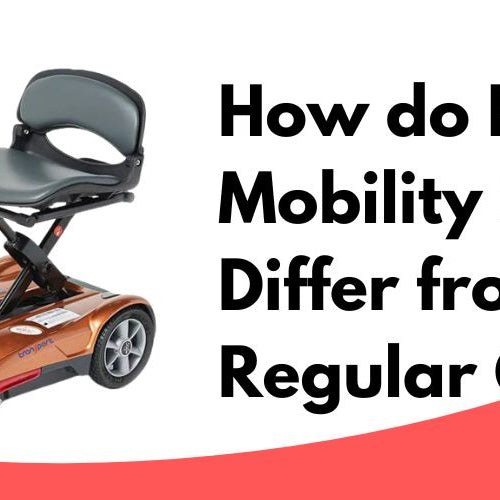








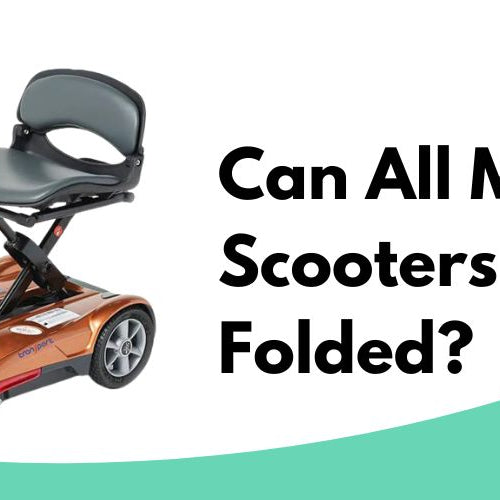
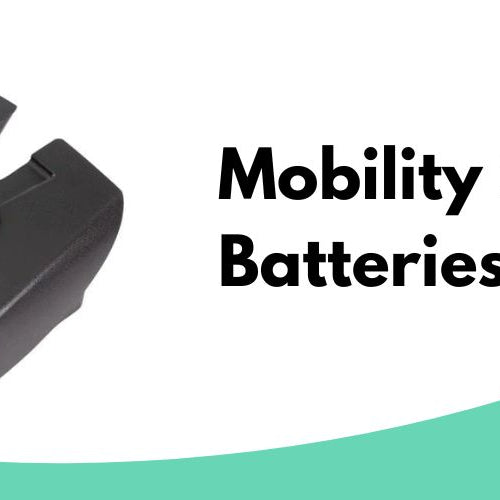
Leave a comment